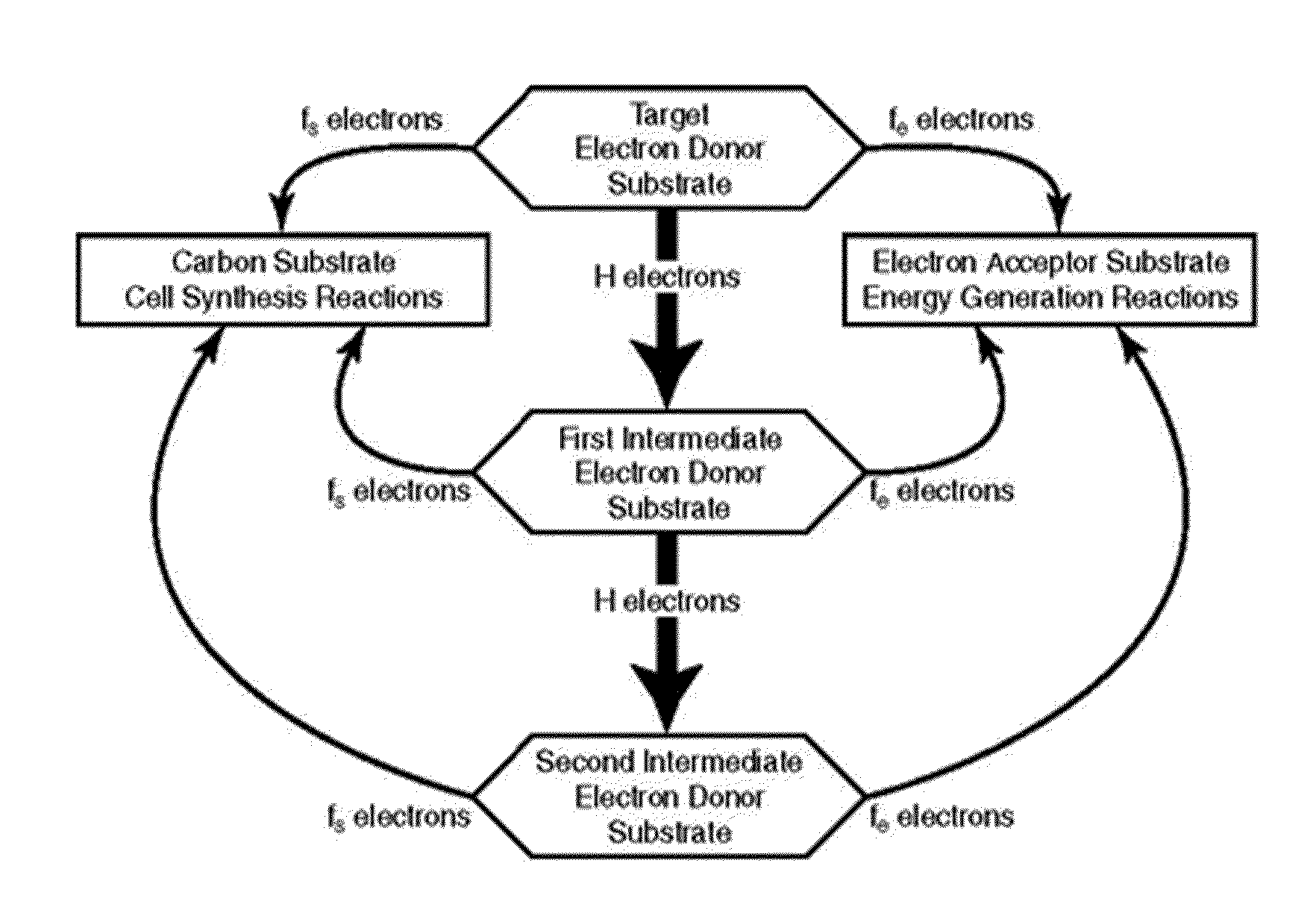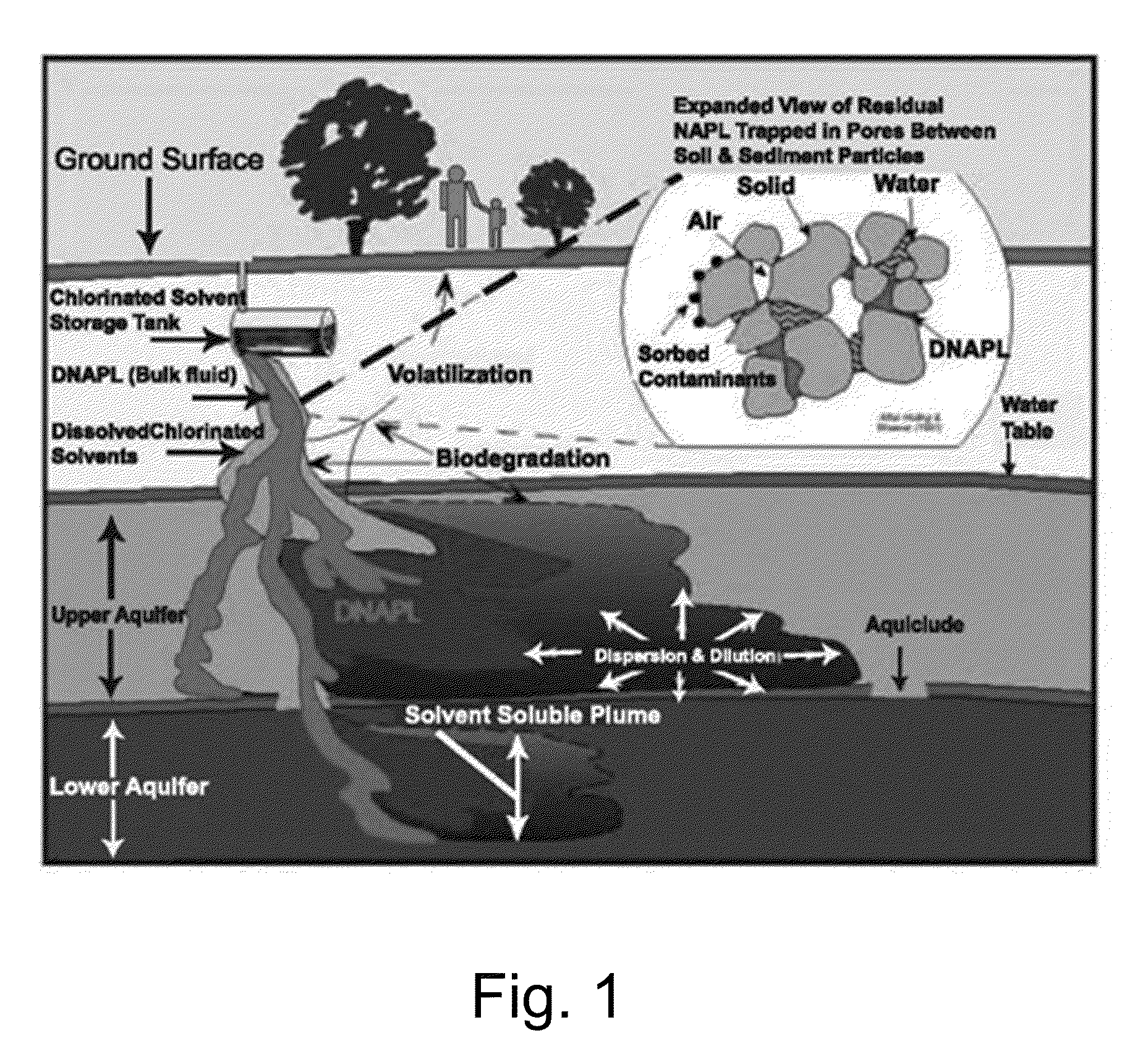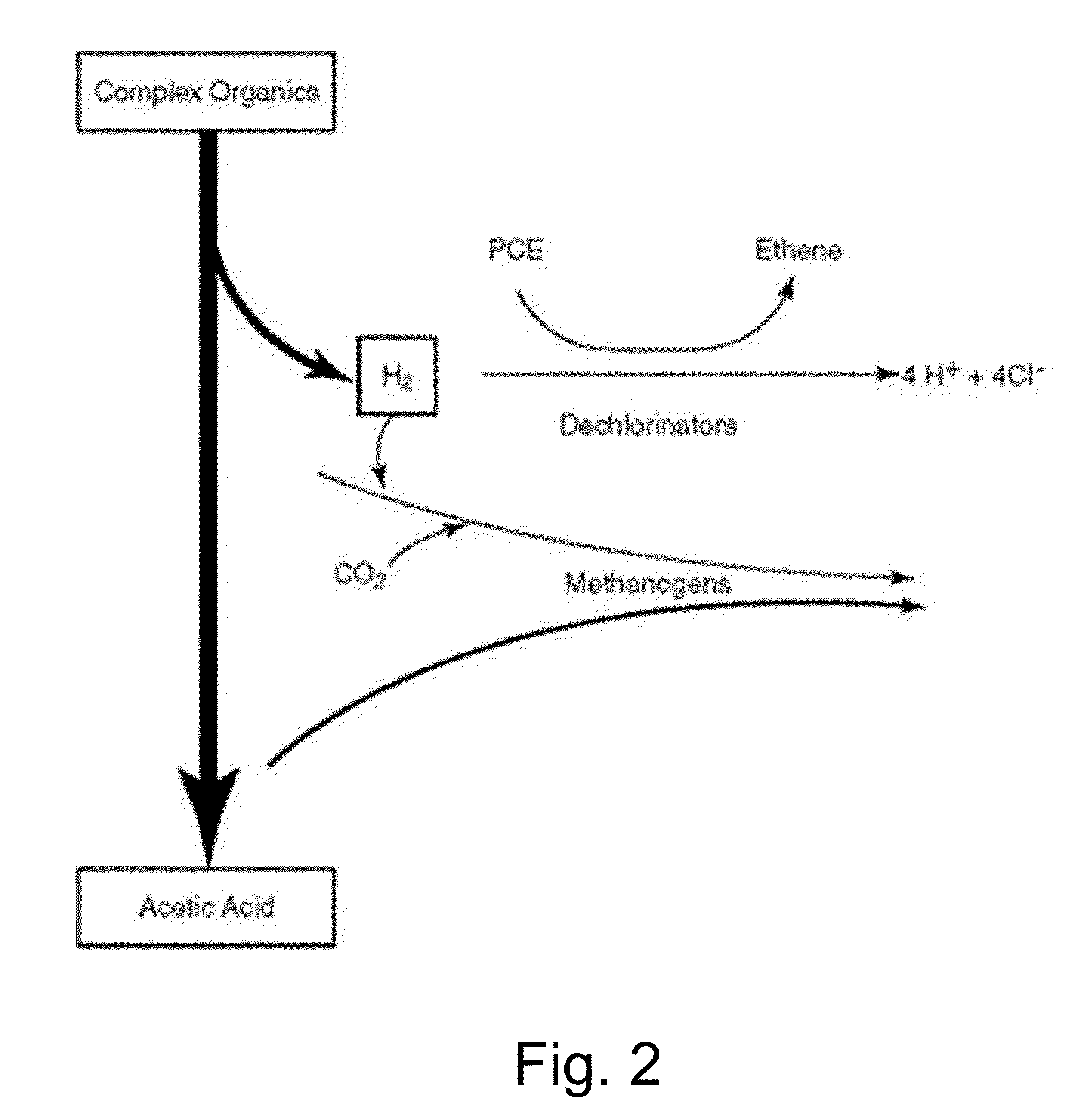Use of encapsulated substrates that control the release rates of organic hydrogen donors
a technology of encapsulated substrates and organic hydrogen donors, applied in the direction of contaminated soil reclamation, etc., can solve the problem that the addition of slugs such as formate, ethanol, or glucose is not as effective for dehalogenation as propiona
- Summary
- Abstract
- Description
- Claims
- Application Information
AI Technical Summary
Benefits of technology
Problems solved by technology
Method used
Image
Examples
Embodiment Construction
[0028]In the preferred embodiment, a lipid bilayer is the effective encapsulating mechanism. A lipid bilayer is a thin polar membrane composed of two layers of fatty acids organized in two sheets. The lipid bilayer is typically about five to ten nanometers thick and surrounds all cells providing the cell membrane structure. As seen in FIGS. 4 and 5, it forms a continuous barrier around cells and thus provides a semipermeable interface between the interior and exterior of a cell and between compartments within the cell. The cell membrane of almost every living organism is made of a lipid bilayer, as are the membranes surrounding the cell nucleus and other sub-cellular structures. The lipid bilayer is the barrier that sustains ions, proteins and other molecules and prevents them from diffusing into areas where they should not be. Lipid bilayers are ideally suited to this role because, even though they are only a few nanometers in width, they are impermeable to most water-soluble (hydr...
PUM
 Login to View More
Login to View More Abstract
Description
Claims
Application Information
 Login to View More
Login to View More - R&D
- Intellectual Property
- Life Sciences
- Materials
- Tech Scout
- Unparalleled Data Quality
- Higher Quality Content
- 60% Fewer Hallucinations
Browse by: Latest US Patents, China's latest patents, Technical Efficacy Thesaurus, Application Domain, Technology Topic, Popular Technical Reports.
© 2025 PatSnap. All rights reserved.Legal|Privacy policy|Modern Slavery Act Transparency Statement|Sitemap|About US| Contact US: help@patsnap.com



